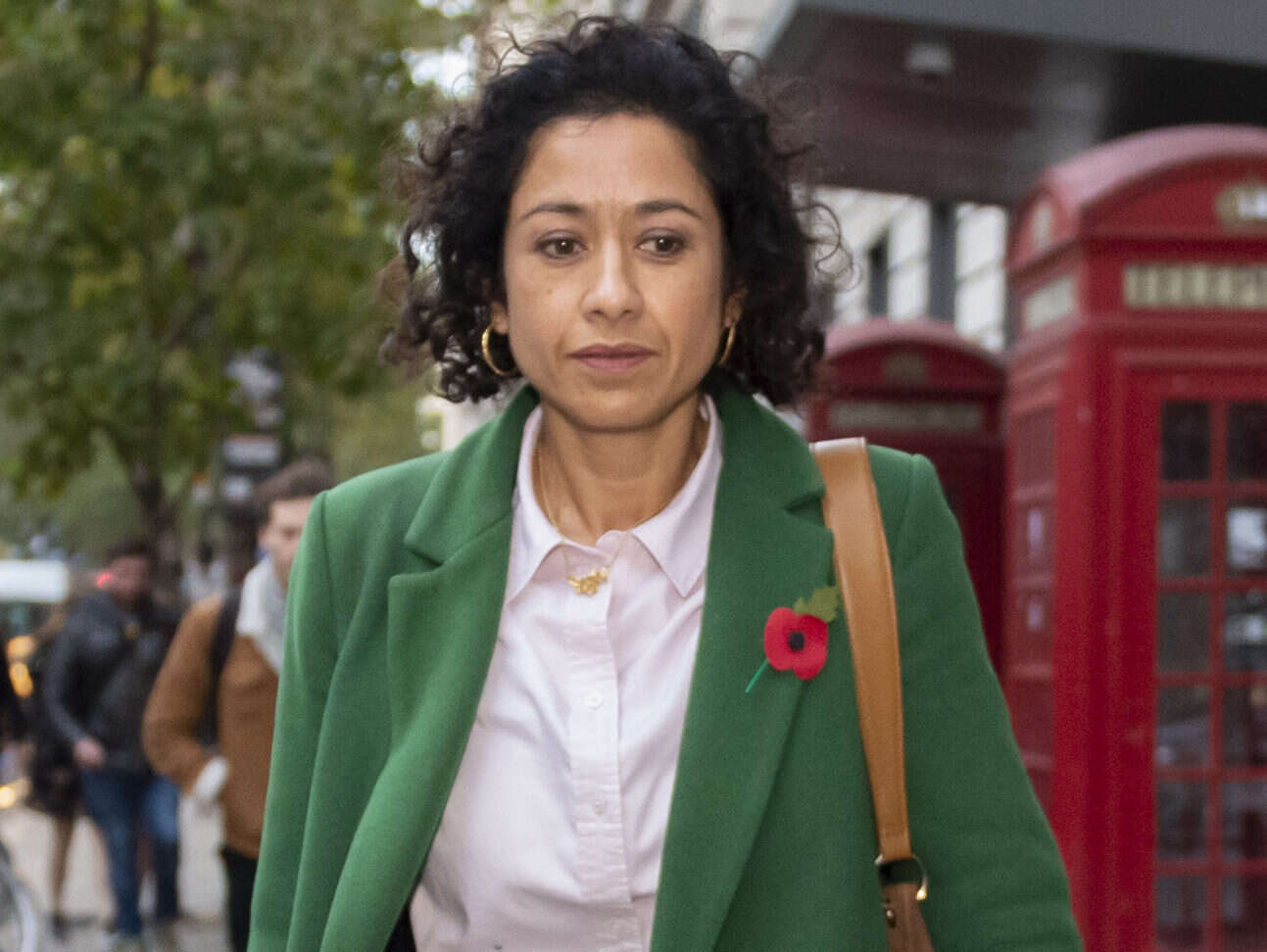
Samira Ahmed has opposed the BBC’s assertion that only high-profile entertainment presenters have “pulling power” over audiences, invoking the names of journalists like Jon Snow and Sir Trevor McDonald.
Ahmed made the case for news talent being paid as much as entertainers as she gave evidence at her equal pay case against the BBC today, which is being heard at the Central London Employment Tribunal.
She claims BBC colleague Jeremy Vine was paid nearly seven times more than her over a number of years for equivalent on-air work.
Vine earned £3,000 per episode to present Points of View on BBC One compared to Ahmed’s £440 fee for Newswatch, which airs on the BBC News Channel before being repeated during Saturday’s BBC Breakfast.
Both centre on audience feedback and are less than 15-minutes long.
Rachel Crasnow QC, representing the BBC, suggested to Ahmed that entertainment, comedy and drama talent have more “pulling power” over audiences than presenters working in news, sport and current affairs.
She went on to say that content in news programmes is more important to audiences than the talent presenting them.
Ahmed disagreed, giving the example of Sir Trevor McDonald being parodied on Spitting Image because he was a “fixture in our lives”.
“So in my experience in news, I don’t think that’s true,” Ahmed said.
Ahmed also recalled the 11 years she spent working at Channel 4 News until 2011, saying that anchor Jon Snow in particular is “really recognised”.
“I think pulling power is often to do with longevity,” she said.
Ahmed also queried Crasnow’s repeated use of the word “talent”, saying: “When I think of talent for a journalist it means their ability, not someone who’s famous.”
Crasnow argued that high-profile presenters can have a “significant effect” on the number of viewers who tune into a programme, particularly for non-news shows.
But Ahmed said: “I’m not sure that’s entirely true because I think a lot of it is to do with slots and who’s given the role and if they are allowed to hold it for a long time.”
She gave the example of former Radio 2 Breakfast presenter Chris Evans’ move to commercial radio station Virgin Radio in attempting to disprove the BBC’s claim about star pulling power.
Evans has a weekly reach of 1.1m at Virgin, according to the latest RAJAR figures, but reached 9.1m at Radio 2 before he left the BBC last autumn.
Ahmed said Evans’ move had “definitely increased” the audience of Virgin Radio but that remains “nothing like the audience of Radio 2”.
“It isn’t as simple as a high-profile presenter creates and drags a huge audience around with them,” she added.
In its court submission the BBC referenced a survey from 2017 which showed 72 per cent of people recognised Vine compared to 29 per cent for Ahmed.
According to the National Union of Journalists, Newswatch has a BBC One audience of about 1.5m while Points of View is watched by 800,000 viewers, with an additional 100,000 for its Friday slot on the BBC News Channel.
But Crasnow argued that the news channel audience was the core viewership figure to take notice of, saying it is “serving an audience that is primarily interested in news rather than just turning the TV on to see what’s on”.
She also claimed there was a dip in the BBC Breakfast audience while the pre-recorded Newswatch programme is aired on a Saturday morning, although this was disputed by Ahmed.
Ahmed said: “All broadcasters are really proud to see how many people are watching the show. I don’t understand – are you saying these 1.5m people don’t count? Because they are watching it.”
The presenter went on to say that airing Newswatch on BBC One was “absolutely core” and central to its premise given it was launched in the aftermath of the Hutton Inquiry which criticised the BBC’s editorial and management processes.
She added that the programme was created to show a mass audience the BBC is transparent, accountable and trustworthy.
BBC Women, a group of at least 170 female journalists and producers at the organisation, said in a statement ahead of today’s hearing: “We know that this is a case Samira did not want to bring.
“BBC managers had every opportunity to pay her equally for equal work in line with the law. We stand with Samira as she stands with so many of us facing similar battles.”
Picture: David Mirzoeff/PA Wire
Email pged@pressgazette.co.uk to point out mistakes, provide story tips or send in a letter for publication on our "Letters Page" blog
